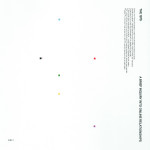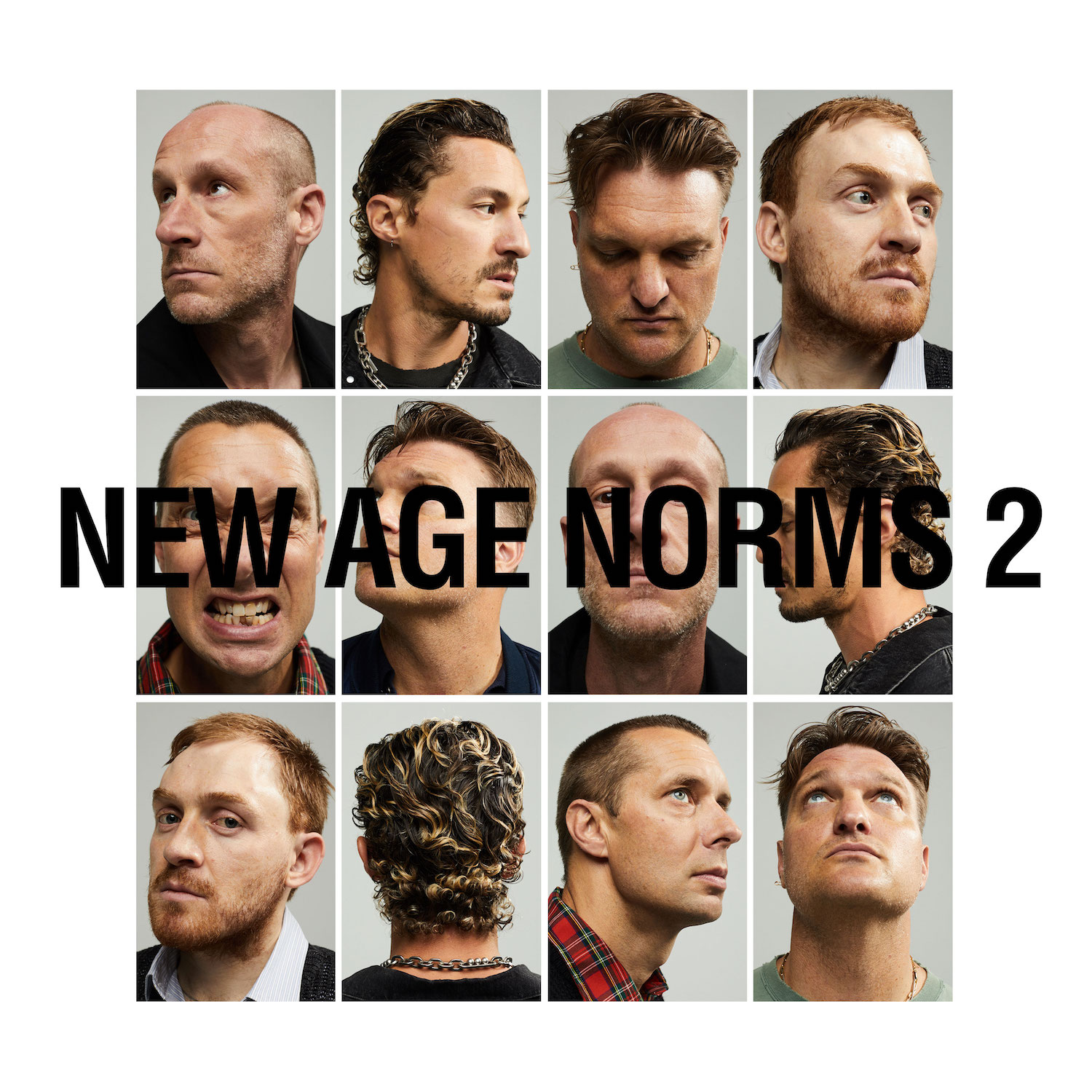Atwood Magazine’s writers weigh in on The 1975’s third album A Brief Inquiry into Online Relationships in regard to its significance and impact, the band’s growth, and their place in the current zeitgeist.
Featured here are writers Natalie Harmsen, Sara Santora, Meredith Nardino, Maggie McHale, Nicole Almeida, and Caitlin Ison

— —
What has been your initial reaction to A Brief Inquiry into Online Relationships?
Natalie: I really liked it! I know there was a lot of hype surrounding the album, and the band delivered as they always do. At first listen I was really excited because there’s nothing more upsetting than when the singles are great and the album itself falls short. This was not the case. It was perfect because it wasn’t too experimental or different. It’s the band honing and refining their talent. It feels like they found their comfort zone and musically they know what works best for them. Lyrically, they’re tackling issues they haven’t before and there’s nothing more exciting to listen to than pop with a purpose.
Sara: I enjoyed it more than I had originally anticipated. Though the reviews surrounding the abum were great, I was nervous that the hype would heighten my expectations and leave me feeling disappointed: I was so wrong. I loved the flow of the album and the experimentation with sound and genre. Every track captured something a little different, but they all fit together beautifully.
Meredith: I was unbelievably excited to hear this album, and it exceeded my expectations. What I love about The 1975 – and what I think makes them an incredibly special band – is that they are constantly evolving. This record doesn’t feel anything like the previous two, but it still undeniably belongs to The 1975. Each single that was released this year had such a distinct identity, so it became hard to predict what the album would sound like in its entirety. The way in which this album is able to span from an electronica-infused alternative and tropical dancehall, to jazz standards and ballads is truly remarkable. One of my favorite records of the year, by far.
Maggie: There was so much hype surrounding this record, that I didn’t really know what to expect from it. I loved the singles and the advanced reviews were promising, but each person digests an album differently. A Brief Inquiry into Online Relationships, however, did not disappoint in the slightest. Upon first listening to it all the way through, it was difficult not to notice the growth that the band has achieved in such relatively short time; as a super-fan for well over 5 years, this album above all made me feel so incredibly proud.
Nicole: I was so excited to listen to it, and had super high expectations that weren’t let down. All singles had been drastically different, and that’s a common thing with The 1975, so I wanted to know what the rest of the songs would sound like. I did not expect that amount of acoustic, raw songs, but I was so happy with them. I like the different layers of The 1975 that we get to really see on this album and hadn’t really been accessible to us before.
Caitlin: I’ll be honest, I wasn’t sure how to feel about it when I first played it from beginning to end. There was definitely a lot of anticipation for this record, but I think I was expecting something else. I do know that it is a record you need to properly digest. The tracks are beautifully written, and I think it really takes time to sit and listen to appreciate them and the story they are telling throughout each song. What I absolutely loved about it is that as a whole, it’s new and something they hadn’t done before–which is certainly no surprise from The 1975.
Mitch: Everything feels… intensified. I’ve been thinking of A Brief Inquiry into Online Relationships as The 1975’s “OK Computer album”; while it does not have the same far-reaching impact or cultural importance as Radiohead’s third record, it’s a critical achievement for The 1975 that unequivocally captures the zeitgeist of these late 2010s. ABIIOR gets under the skin with an intimate focus on our collective and individual existence in the present. It’s an enchanting collection of love songs, protest songs, celebrations and confessions that implores us to embrace the fullness of life’s experience.
Lindsay Call: Yes, I listened to all of it… After stopping several times to ask myself just why I was doing this to myself, and what I was hoping to find in the process. As a formerly rather big fan of The 1975, I’m withholding my immediate comments from publication at this time until I actually have some opinions that are fully formulated and not solely caustic. Coward’s way out, but really — and perhaps, at some deeper level that I really can’t hear through all the electrocution at this time, this is really what the entire thing is getting at — maybe I should think a bit more about the words I choose to use, and pause before putting my roast-worthy thoughts out on the Internet.
What are your standout tracks, and why?
Natalie: “Love It If We Made It” because it sounds like the band at their biggest and best.
Sara: This is a difficult one for me. I would have to say “Sincerity is Scary,” “The Man Who Married A Robot/Love Theme,” “Mine,” or “I Always Wanna Die (Sometimes).” These tracks highlight something deeper within the band, and showcase their ability to write outside of the box in which most listeners/critics might place them. Specifically, “The Man Who Married A Robot/Love Theme” is an incredible note on where our culture is, and how technology has made us lonelier than many of us would like to admit. It’s a poignant dystopian “love” story, and definitely helps shape the album.
Meredith: “Love It If We Made It” is career-defining and feels like the most accurate representation of the world in which we live today. I’m also struck by the more vulnerable moments on this record, like “I Couldn’t Be More In Love” and “I Always Wanna Die (Sometimes).” These tracks are driven by beauty and heartache, and they show a lot of growth from a songwriting standpoint.
Maggie: Obviously, “Love It If We Made It” is this record’s pinnacle track: it’s socio- culturally and politically relevant, laden with anthemic instrumentation, and the most encapsulating single not only for this album, but the band themselves. Aside from this, I truly love ABIIOR’sversion of the band’s eponymous opening track, more so than either of the previous records. “Sincerity is Scary” is my personal favorite, with lyricism like “And why would you believe you could control how you’re perceived?” and “You lack substance when you say something like, ‘oh, what a shame.’” This lyric, particularly, ostensibly references multiple instances from The 1975’s sophomore effort: “Love Me,” “The Ballad of Me and my Brain,” and “Paris” all include the lyric “what a shame.” It’s a self-deprecating moment in true 1975 style, and it’s very much appreciated.
Nicole: I love “Be My Mistake”, “I Always Want to Die (Sometimes)”, and “It’s Not Living (If It’s Not With You”. It was really hard for me to narrow it down to three tracks, since I love the album and genuinely feel like there’s no filler track on it. I feel like these three tracks showcase the cinematic quality of all of The 1975’s tracks, but also their raw humanity and ability to write both absolutely heartbreaking tracks and pop bangers. But every track on the album is essential, and that’s not something I saw lightly. They completely nailed the tracklist.
Caitlin: This is tough, since there are a lot of tracks on this that have a different tone and give different feelings with every listen. “Sincerity is Scary” was by far my favorite track from the singles, but listening to the record all the way through, I’ve had a newfound appreciation for “Love It If We Made it” and “It’s Not Living (If It’s Not With You)”. In my first listen, however, “I Couldn’t Be More in Love” was the one that really knocked me out; from the music to the lyrics to Matty’s vocals — everything was so stunning. I’ve never heard them perform such a beautiful ballad. The lyrics are honest, and the way Matty sings them made the message that much stronger.
A Brief Inquiry into Online Relationships represents a categorical shift for The 1975 in a variety of ways. What song do you feel best represents the band’s growth from their previous works?
Natalie: I feel “Sincerity Is Scary” blends together the best of the band, while building on what they’ve done previously. It has a very retro sound that feels very soulful and gospel-y to me, and yet there are sprinkles of that magic 1975 sound mixed in that makes it a song you know only they could pull off.
Sara: I loved “Inside Your Mind” because it felt like “Antichrist” mixed with something from the I Like It When You Sleep era. It was big yet simple, and shows how far the band has come from their debut.
Meredith: “Inside Your Mind” brings the overblown melancholy that’s so characteristic of Manchester-born artists. There’s an intensity to this song that is hypnotic and cinematic, like “Robbers” 2.0. I’m in awe of the way this song draws you in with dark romance and painful honesty – you can really sense the vulnerability behind each word.
Maggie: “Sincerity is Scary,” as aforementioned, outright references the band’s previous work, so that definitely makes the list here. “Surrounded by Heads and Bodies” feels awfully similar to “Nana” and “She Lays Down” from ILIWYS, yet slightly upgraded to suit the band’s current form. “Love It If We Made It” has been touted as a blend of “Robbers” and “Loving Someone,” while showing off the group’s heightened lyrical prowess that seems to only get better with each new record. “How to Draw/Petrichor” takes an old 1975 song and updates it to perfection, allowing fans to appreciate the old and the new. The 1975 are masters at curating themselves, and it’s exciting to see how they continue to shapeshift.
Nicole: “I Always Want to Die (Sometimes)” simply because it accesses a depth of emotion both lyrically and sonically that in my opinion we still hadn’t seen. This song taps into the honesty that’s so definitive of this record in a massive way, and turns normal thoughts into a beautiful and huge track. It’s also the perfect closer.
Caitlin: For me, “Sincerity is Scary” is a big one because it truly highlights the sounds that The 1975 have always been known and praised for, but there’s definitely something more mature about it than previous works. The flow of the song and the rawness in the subject matter are strong suits of the band’s sound and it’s obvious why they picked this track for one of their singles. On the other end of the spectrum, however, “I Always Wanna Die (Sometimes)” definitely shows their growth because it’s a sound they’ve almost never done before, yet the lyrics still capture the 1975 essence. There’s a perfect balance of experimentation and familiarity here.

This album is arguably one of the most socially conscious records of 2018, and certainly for the band overall. Do you have a favorite lyric that best reflects these sociocultural sentiments?
Natalie: Definitely, “Love It If We Made It.” The minute I heard the lyric “Selling melanin and then suffocate the black man” my ears perked up. It’s one of the most irritating things to see people listen to hip-hop and tan their skin and try to dress and do their hair like black people, all while shooting us, calling us ghetto etc. It makes no sense. People love the culture but not the actual baggage that comes along with the racism and oppression black people face. So a lyric like this, while very simple, highlights one of the most uncomfortable paradoxes I see everyday. It’s interesting to see someone like Healy singing about it, because it makes one wonder that if a white English guy can take notice, when will everyone else?
Sara: When “Give Yourself A Try” was released, I was simultaneously entertained and somewhat saddened by the lyric, “like context in a modern debate I just took it out.” I feel as though our political climate has become less about genuinely trying to understand issues as they are and more about trying to be right. We aren’t really debating anymore, we’re all just sort of yelling at each other, which leads us to a climate that’s detailed in “Love It If We Made It.” This inability to understand context and hold a conversation leads to chaos and anger, and allows people to be hurt. “The war has been incited and guess what? You’re all invited…”I think a lot of us feel this political/cultural war and feel very out of control. They did a great job at touching on this.
Meredith: There’s no denying the power of “Love It If We Made It” – it perfectly encapsulates the pain, confusion, and chaos that defines this cultural moment. But my favorite lyric comes from “Sincerity Is Scary,” which feels more like a tender and genuine plea than a checklist of things to be angry about. In the chorus, Matty sings, “Instead of calling me out / you should be pulling me in.” This lyric has continued to resonate with me since the song first came out because it’s a simple sentiment about being understanding and compassionate, even if that seems like an impossible feat. Times like these are when we need to support each other the most.
Maggie: “Love It If We Made It” provides some of the most poignant and biting lyrics not just on this record, but in 2018 overall (re: a beach of drowning three-year-olds, “I moved on her like a bitch!”, selling melanin and then suffocate the black man, to name a few); however, credit should also certainly be given to the deep feelings “Be My Mistake” elicits. The song finds Matty Healy grappling with life, love, and infidelity on the road, and his internal battle of desperately trying to remain faithful to his partner while fans are literally throwing themselves at him. Especially now living in the internet age, when it’s so simple for someone to slide into a rockstar’s DMs, Matty’s raw honesty about balancing a modern rockstar’s lifestyle definitely tugs at the heartstrings. It’s a sociocultural moment that anyone existing outside of the music industry may not think to address.
Nicole: The whole of “Love It If We Made It” has been increasingly important to me since its release. Even though the lyrics are just signposts to huge problems we have in the world today, and refrain from judgement and direct criticism, the angst and desperation in Matty Healy’s voice represents exactly how I feel about the world at the moment. It’s an anthem for the youth of 2018, and this track’s power cannot be denied. That being said, the line “how do you believe you can control how you’re perceived when at best you’re intermediately versed in your own feelings” from “Sincerity is Scary” to me represents a lot of how society works today – a lot of people trying to control their narrative through social media, scared of being judged, focusing on external and superficial matters rather than looking inwards and addressing their real problems.
Caitlin: Certainly “Love It If We Made It,” for that lyric that gives everyone the chills–”Modernity has failed us.” It’s a very self-reflective song, and I think it perfectly represents the way most feel about the state of our society. There is some regret in the way we got here, knowing that we are all guilty and participants in the way things are, but there is still a positive outlook and hope for a change.
The lyrics on this album are much simpler and more straightforward than on The 1975’s previous albums. What do you think of this change, and what’s its impact on the album experience?
Natalie: I think there is a lot of power to be found in simplicity. Not everything needs to be long, drawn out or flowery for it to have a meaning that resonates with people. I think it works for the band. Sometimes you can say much more by saying hardly anything at all. The music has the space to speak for itself.
Sara: I love that Healy is being real with us. I don’t always want to have to feel like I’m jumping through hoops to understand the meaning of a song. I think that Healy’s decision to give the meaning directly to us also makes it easier for listeners to form such strong emotional connections. I think that’s what made “Somebody Else” so popular…you heard it and you knew, and it hit home because you’d been there.
Meredith: I find the simplicity to be almost poetic. This album was born out of a complicated time in Matty’s life and I think the way in which he is able to write about those experiences with clarity and honesty is inspiring. Being open about his struggles and letting each song hold its own space shows a great deal of maturity. Moving between songs that are bombastic and upbeat to ones that are tender and solemn is, to me, indicative of the extreme highs and lows of one’s journey to sobriety.
Maggie: The straightforwardness of Matty Healy’s lyrics definitely play in the album’s favor, providing raw redolence that feels uniquely complex. He’s not shy to address things as personal as his turbulent drug history and his difficulties remaining faithful on the road, as well as more public things like the state of our current political climate and life in the digital age. ABIIOR is a dynamic album from beginning to end, thanks heavily in part to its simplicity.
Nicole: While I absolutely loved adding at least five new words to my vocabulary every time I listened to a new 1975 album, the simplicity of the lyrics this time around makes them so accessible and universal to the general audience that it just makes the band even more potent and relevant to today. Since honesty is the trademark of this record, it seems very fitting to dial down on the complexity of the words and instead of the feelings. If there was any moment to do this, this was it.
Caitlin: I absolutely love that these lyrics are much more straightforward and honest. Metaphors are often used to mask emotions because there is still that mediation between the story-telling and the truth. I know that for Matty, the confrontation and sincerity comes from his road to recovery from addiction. It seems that he is asking all of us to do so with our own issues, as he addresses society as a whole throughout the album. No more metaphors and ambiguous messages, but rather, opening up conversations that we are so afraid to uncover.
From musical influences to sheer momentum and flow, there’s a lot going on throughout A Brief Inquiry. How do you feel The 1975 transition between styles, genres, and sounds on their third record?
Natalie: I think ABIIOR is in the same vein as the band’s previous record in that it doesn’t let styles or genres stop them making their songs flow. Some tracks are more rock or pop or funk — there is a little of everything. We became so accustomed to all the different sounds, from synths to horns that this new album doesn’t feel forced when it comes to using all the various instruments to their full potentials.
Sara: ABIIOR has subtle nuances to it that helps the flow. The music in “Robot” can be heard throughout the album, and was the music used when advertising the album initially. I loved this decision on their part, as it’s always nice to have a thread that serves to tie everything together. But I do agree with Natalie in that they never have to force transition or flow…it just works naturally for them.
Meredith: As reviews of this album came flooding in, I was a little worried hearing about all the different sounds colliding on this record. You read about a three-minute interlude narrated by a Siri-like robot and brace yourself for a flop, but when you finally listen to it, you realize it makes complete sense. The 1975 have always been a band devoid of genre – you can’t really fit them into any of those defined boxes. The variety on this record is an expansion of that idea. Genres can be limiting, but this record is a testament to the fact that you can be a pop band with substance and can successfully challenge listeners’ expectations.
Maggie: If anyone can shift so seamlessly between genres, themes, and overall styles, it is absolutely The 1975. The band has continuously proven that they are capable of coupling uniqueness with ubiquity, which has allowed for their fan base to explode as rapidly as it has. The 1975 know that they need not subscribe to a single sound to make themselves singular, and ABIIOR defines exactly what they do best: creativity without compromise.
Nicole: At first I thought it was a little jarring, just because I wasn’t expecting so much back and forth between electronic songs like “I Like America and America Likes Me” and ballad-like tracks like “Inside Your Mind”. But listening to the album, it becomes almost seamless and natural to oscillate between these peaks and troughs, it’s beautifully done and gives the album a lot more life.
Caitlin: Compared to their previous albums, I feel that ABIIOR is so experimental in its genres. When speaking of “The 1975 eras,” fans and music critics alike separate their debut and sophomore album by the way each one sounds, since it is so clear and distinct. This third record, however, touches so many different genres, it’s almost hard to keep up. I think they did so because they were able to, with the maturity and experience the band has gained together over time. That’s why, as I’ve mentioned before, that it truly is a record you need time to take all in and digest in order for it to make sense.
Is the growth displayed in this album expected? Are The 1975 changing lanes or direction at all?
Natalie: I feel like sonically, there isn’t much growth between this album and the last one. The biggest leap the band has ever taken was with their second album, and this feels like an extension of that record. Not that this is a bad thing. It’s allowed them to build and get comfortable with what they’ve been working towards, without tossing aside the foundation of their sound. I don’t think there’s a change in direction musically. Content-wise in terms of lyrics and themes, they’ve decided to become even more critical of society and its failings. They’ve pushed themselves to be their most introspective lyrically, and that’s the one area where they’ve certainly branched out.
Sara: I think that their growth is both natural and expected. As I previously mentioned with one of the tracks, they’ve done a great job at pulling from both of their past records to make something that’s fresh and new without being wildly different. However, I do think that “TOOTIMETOOTIMETOOTIME” was a bit out of the expected trajectory, at least for me, as it sounds like more of a club banger. Then again, because I know that they listen to a variety of music and are open to experimentation, I wasn’t totally surprised to hear them try something like that.
Meredith: Given the amount of growth evident between the first and second albums, I was expecting a certain amount of change for this one as well. But I don’t think I could have predicted just how moved I would be – listening to this record from beginning to end is an emotional rollercoaster. Growth comes with experience, and I think this band is at a very different point than they were four years ago, both personally and artistically. The whole of their career has been about discovery and pushing boundaries. If anything, this album is just a continuation of that feeling.
Maggie: Growth should be expected for any artist that releases multiple records – if it all remains the same, why care in the first place? Growth allows for artists to come into their own (or sometimes out of it), and provides opportunities to showcase a version of themselves that they feel deserves the attention. The 1975 are astutely cognizant of this, and while each of their records have hearkened back to their predecessors in slight ways, the band still maintains a remarkable sense of knowing that they can always improve, and constantly work to become better versions of themselves. ABIIOR, like the two preceding records, allow The 1975 to show off what they are capable of doing, doing so this time with an ever stronger and sharpened wit and accountability that never lacks self-awareness.
Nicole: I don’t feel like they’re changing, but rather naturally progressing. Their first two albums showed incredible potential, and especially ILIWYS proved that they were capable of incredible things, but ABIIOR is the pinnacle of The 1975’s growth and talent. It’s the album that naturally allows them to progress from being a great band to being the band of 2018 and 2019. I’m extremely glad that ABIIOR is the album with which they’re consolidating their total world domination, headlining festivals, and becoming critics’ favourites.
Caitlin: Looking at every song separately, each one has some sort of sound (obvious or not) that is reminiscent to their previous works. I think the growth is shown in the solidity of these sounds, in a sense that they are able to even create a record where someone can hear it and go, “yeah, that definitely sounds like The 1975.” In terms of changing direction, I think they are doing so with their lyrics and it certainly excites me for the next installment.
Reviews have been saying that this album is good at representing the younger generation and the times we’re living in. Do you think it does that? If so, how?
Natalie: I feel this album speaks to young people very directly. My teenage sister identifies a lot with this album, and even though I’m older, we agree that it hits on what it means to be a millennial growing up in an internet-driven culture with a 24-hour news cycle that commoditizes every moment for consumption. They tackle things like the current political climate and the ubiquity of social media in a way that is very modern, relevant and clever.
Sara: I believe that this album does a great job at representing today’s youth culture. Like Natalie said, we live with a 24-hour news cycle that has pervaded our social media, so today’s youth, whether they’d like to be or not, are constantly concerned with the state of our world. With that, today’s youth are having to navigate relationships alongside their online presence…everything that does or does not happen on social media matters, and being sincere and vulnerable is, I believe, harder for the younger generation than it ever has been. This 24-hour news cycle, when coupled with social media addiction, makes room for other forms addiction to grow, as people are now being more stimulated than ever before. I think that The 1975 paint all of these themes so well. I know it was hard for me to not have a strong emotional response when listening to this new album (and the others), so I can’t imagine what it feels like to be a teenager hearing these songs for the first time.
Meredith: Absolutely. There’s a darkness and a light to this album, and I think that’s really indicative of the youth experience in a time like this. We may feel lost and confused, but the potential for our future is limitless. “Love It If We Made It,” “Give Yourself a Try,” and “I Like America & America Likes Me” all capture the space between hopefulness and hopelessness that a lot of young people inhabit right now. Young people are so much more passionate, intelligent, and understanding than older generations portray us. This band recognizes that and this album is saying: we hear you, we see you, we support you. I’ve been a fan of The 1975 since the beginning when I was only 16 years old. It feels like we’ve grown up and grown aware together.
Maggie: This album definitely epitomizes Millennial and Gen Z sentiments with admirable accuracy. The 1975 feel as though they have a responsibility to their fans to use their art to best represent and reflect what is happening the world around them, and do so in a way that is digestible and understanding. More than ever, we as a society need music like this to help guide us through all of the frustrations, celebrations, trials and tribulations that life and the universe throw at us, and we should recognize and appreciate The 1975 for being so open and honest about finding the light in these crazy times.
Nicole: There’s a desperate search for hope and authenticity throughout the album, which I feel is what young people are thirsty for these days. It’s hectic and eclectic, at times hopeless and barren, at others rich and full of colour. It’s the perfect reflection of what it feels like to navigate the world and society today.
Caitlin: It does, for obvious reasons. The album is about relationships that are mediated online and what that means. I do think that it’s not just for the generation that grew up with technology, however, but for everyone, since everything we do has some sort of relation to technology. Whether you’re part of that generation or not, you still have some sort of online relationship. At the same time, you can feel the frustration and angst in these lyrics about our role in society, and what we’re able to change and not change. This is always something that the younger generation is feeling, no matter what decade you’re in.
Some are calling The 1975 the band of the decade. Does this record live up to that standard?
Natalie: I wish I could say I agreed with that. The 1975 is huge, and what they’re doing is certainly special. I’ve been listening to them since high school and watched them launch into the spotlight. But I think there are too many other promising bands out there right now trying new things and just don’t have the same exposure quite yet. So I would say the band is one of the bands of this decade, but not THE band of the decade. ABIIOR is a stellar album, there is no doubt about that. But I don’t think it marks anything unique or daring, especially when you compare it to albums this year like Janelle Monae’s “Dirty Computer” which was a bold, game-changing album for her. This is what ABIIOR should have been for the band, but it wasn’t. This is the band’s best album so far, yet I truly think The 1975 has a better album in them.
Sara: I agree with Natalie. I also believe that The 1975 are doing something incredible. They’re definitely touching their listeners in a way that is so often hard to do. That being said, I am hesitant to want to give them such a high distinction because, like Natalie said, there are a lot of bands out there who could be doing more, but we just don’t know it. This album is beautiful, but I want to wait for the next before solidifying my answer.
Meredith: Band of the decade is a huge set of shoes to fill, but I think The 1975 is one of the most exciting and ambitious bands we’ve seen in a long time. They really have their fingers on the pulse of pop culture and are constantly evolving along with their fans, who seem to multiply every day. ABIIOR is certainly their strongest and most interesting album yet, and it’s one of my favorite albums of 2018. I also think this album proves something to anyone who still considers The 1975 a frivolous pop band because of their predominantly teen girl fanbase. With ABIIOR, the band commands attention and demonstrates dimension. The trajectory of their sound since their first album shows that they are capable of incredible things. I’m eager to see what direction they go in next.
Maggie: I think in terms of their overall impact, The 1975 will definitely be considered the band of the decade (if not just within the “indie” circles). Not just with ABIIOR, but with everything that they have done and are currently doing: The 1975 will undoubtedly come out on top of the 2010s with unmatched force. Once dubbed “the biggest band you’ve never heard of,” their awareness is slowly seeping into mainstream consciousness, and their lyricism and musical contributions are not going unnoticed. The 1975 may still appear as a longshot for this accolade, but it may not be as far-fetched as some might think.
Nicole: If there’s any album that’s here to consolidate that statement, ABIIOR is it, undoubtedly.
Caitlin: That’s a very large statement, but I think The 1975 have definitely made a mark in the indie music circle, purely for their ability to create a familiar staple sound. This is something they have been working on with their last two albums, and something that is noticeable and prominent with this album. I’m not sure that this is solely the record that would give them that title, but rather, their entire discography in general is what gives us a name to remember. As others have stated, there are certainly other bands and artists that have done something bigger, but that doesn’t diminish the work and legacy The 1975 will be leaving behind.
— —
:: stream/purchase ABIIOR here ::
— — — —

Connect with The 1975 on
Facebook, Twitter, Instagram
Discover Ariana Grande on Atwood Magazine
? © Dirty Hit








